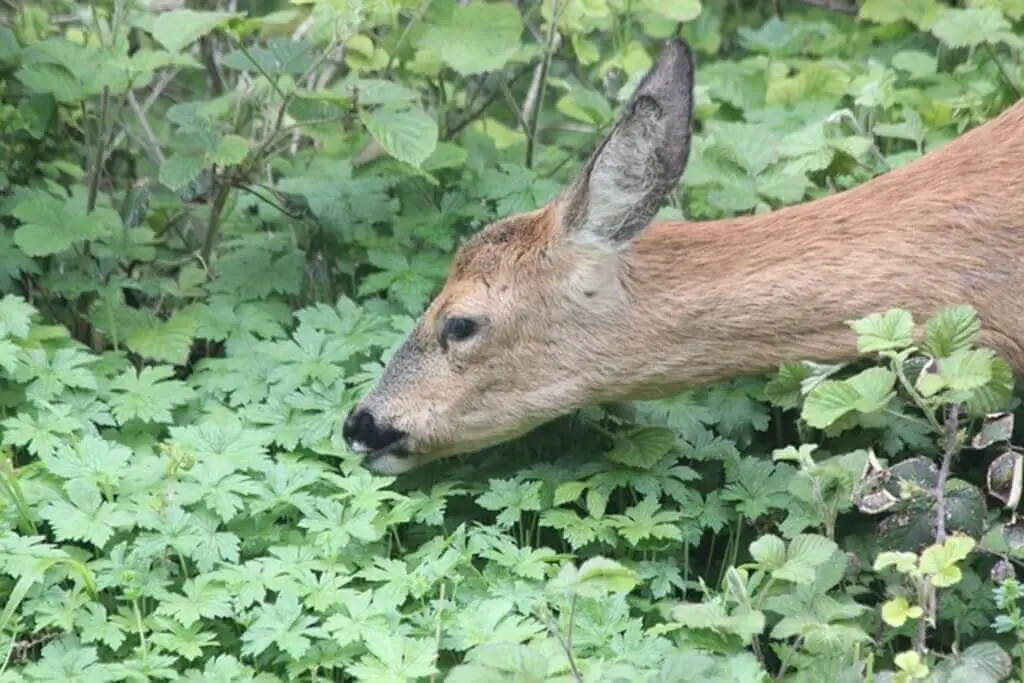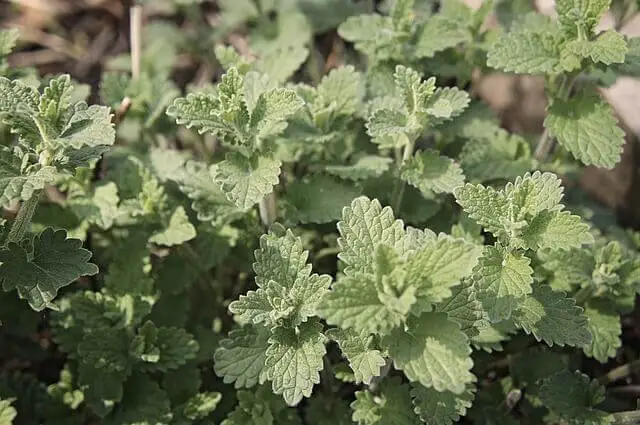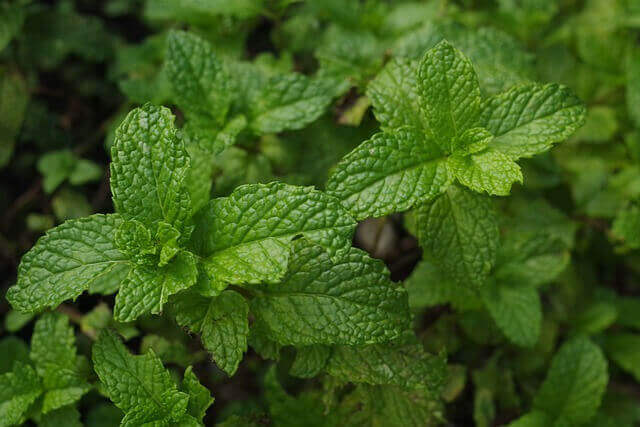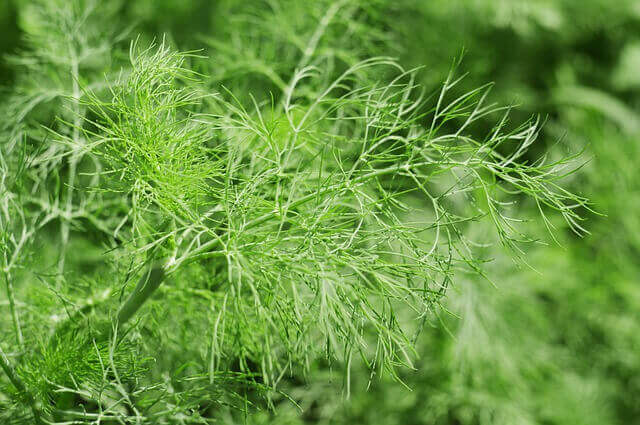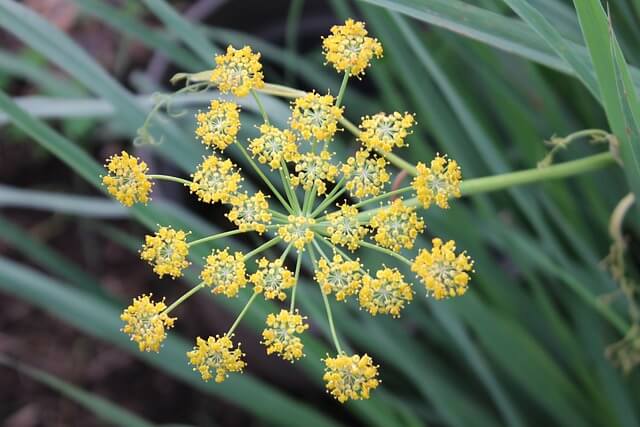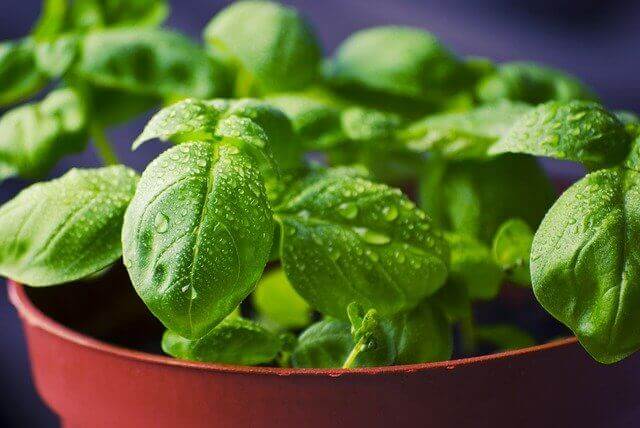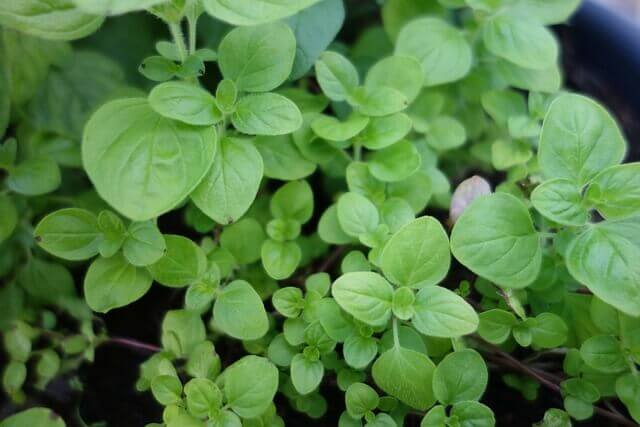18 Herbs That Are Deer Resistant (with Photos & Details)

What is the best way to keep deer away from your garden? One solution is planting herbs that are resistant to deer.
Deer don’t eat these plants, so they can be planted close together without fear of being eaten. Below are 18 herb varieties that are deer resistant and a brief description of each plant:
Table of Contents
Oregano
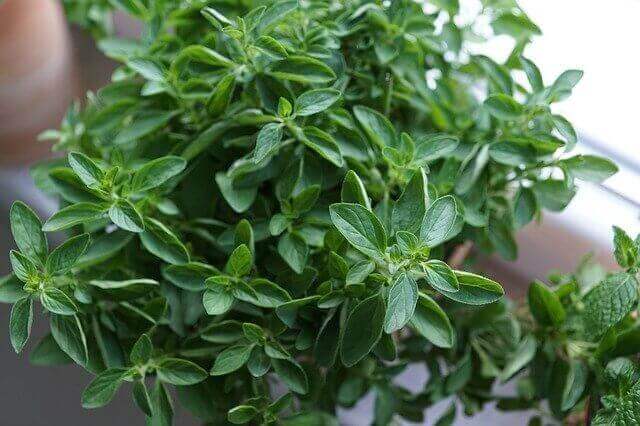
For many gardeners, deer are the worst nightmare. Deer are a destructive force in gardens and other outdoor areas, and it can be difficult to protect plants from them. A popular way of deterring deer is by planting an oregano plant near desired plants. But does this work? Oregano is said to be an effective deterrent for deer because they do not like the smell or taste of it.
Related Posts:
Thyme
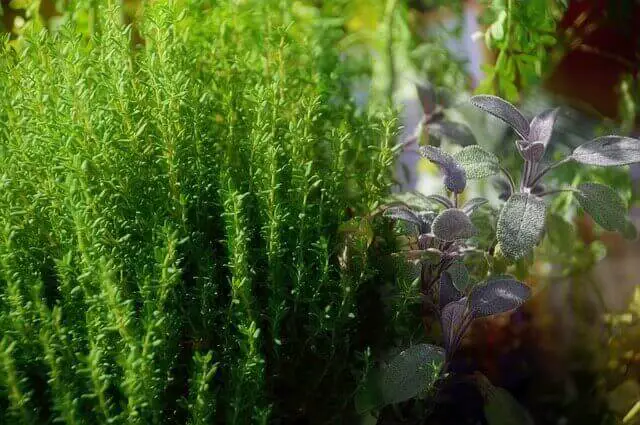
Deer are a common problem for many people in North America. They cause much destruction to gardens and even yards, eating all the vegetation they can find. There is no real way to get rid of them because they’re just too clever at hiding from people, but you can make your yard less appealing to them by planting thyme. This plant is not only pretty and smells great when it’s blooming, but deer hate the smell so much that they will avoid any area with this herb.
Related Posts:
Rosemary
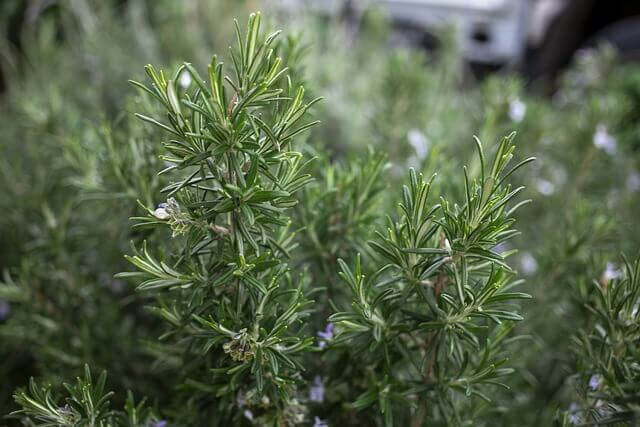
Rosemary is often used as an ornamental plant, but it may also be effective at repelling deer from gardens or yards. The strong scent of Rosemary causes them to avoid areas where it grows, so planting some near garden beds may help deter them from browsing on other plants that they might otherwise find more appetizing.
Related Post:
Sage

Sage is a herb that can be used to deter deer from eating a garden. Does sage really work? Yes, it does! Sage contains the chemical sabinene which has been found to repel deer. When you plant the sage in your garden, they will be attracted to the smell of it and will avoid it. The plants are also a natural insect repellent for other animals like rabbits and raccoons.
Related Post: How to grow Sage at home?
Bee Balm
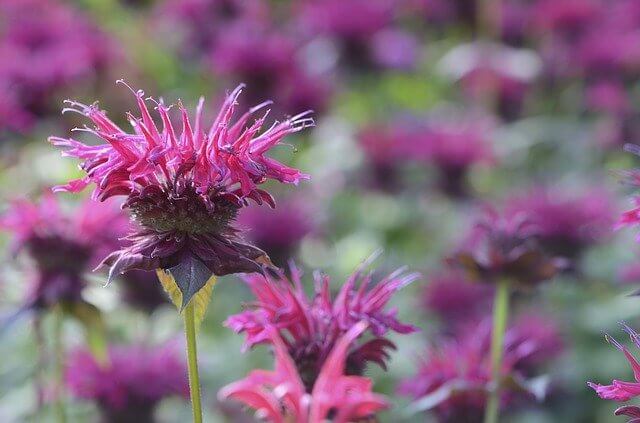
If you’re looking for a natural way to keep deer away from your garden, consider planting bee balm. Bee Balm is an aromatic plant that has a very strong odor, and deer are known to stay away from the smell of it. Gardeners should place bee balm around their garden perimeter to keep deer away and have a better chance at growing flowers, vegetables, or fruits without interference from hungry deer.
Related Post:
Lavender
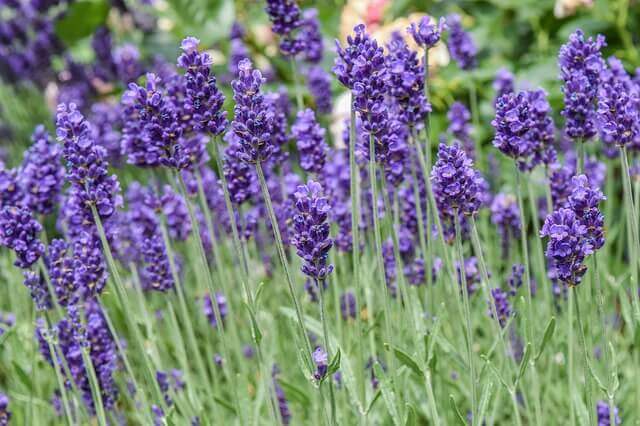
If you have been struggling with deer eating your plants, consider planting lavender. Lavender is a herb that deer do not like, so planting lavender around your garden can help keep them away from it. It’s important to plant lavender where deer might walk by or have access to your garden because they will avoid those areas if there is a smell of lavender in the air. Some people say that deer can smell lavender from miles away and avoid gardens planted with it.
Related Post:
Yarrow
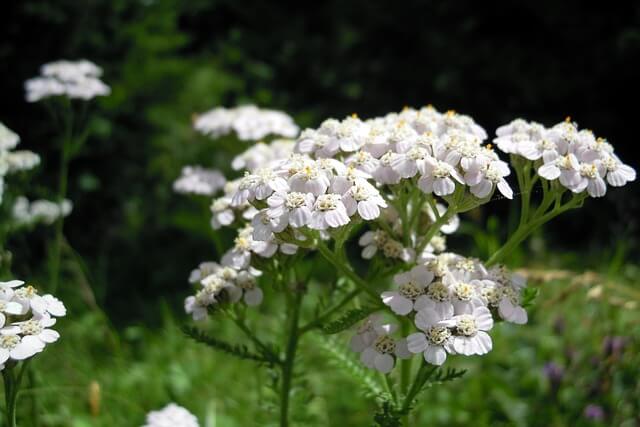
Do you have a garden that is frequented by deer? A great way to keep deer away from your garden is by planting yarrow. Deer avoid this plant because it has a strong smell, and they are not able to consume the leaves or flowers. Deer will also avoid other plants that have similar odors. Yarrow can be planted in flower beds, between vegetable rows, and in other areas of the garden where you want to discourage deer from browsing.
Catnip
Catnip is a herb that comes from the mint family. It has been used for centuries to keep away pests, and in particular, deer. Deer are not immune to catnip; it stimulates their olfactory senses with its pungent smell. The scent triggers a response which prevents them from eating plants or flowers in an area where catnip grows. Catnip is safe for use around humans and pets because it does not cause any harm if ingested by animals.
Related Post: How to grow Catnip from seed?
Wild Garlic
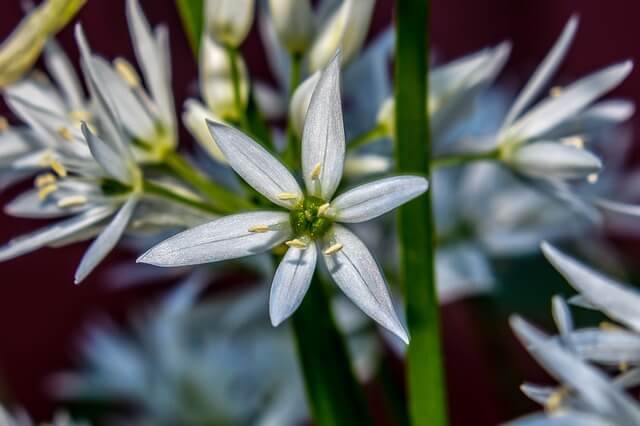
The first step to deer-proofing your garden is to plant a perimeter of garlic. Deer are repelled by the smell and taste of garlic, so if you plant it all around your yard, they won’t cross over into it. A friend of mine had some problems with deer in his yard for years, but then he found out how they got into his garden, so he started planting garlic along the fence line of his yard. Since then, there have been no more deer problems!
Related Post: How to grow Garlic at home?
Mint
Do you have a deer problem in your garden? The mint plant is a natural repellent for deer and will usually not approach it. Many of these gardeners swear by the power of mint to keep deer away from plants and flowers. It contains a compound called menthol, which gives mint its signature scent. The aroma of the plant may be enough to deter deer from approaching your garden. The strong smell that emanates from the plant seems to deter many types of animals including deer, rabbits, raccoons, and mice.
Related Post:
Chamomile
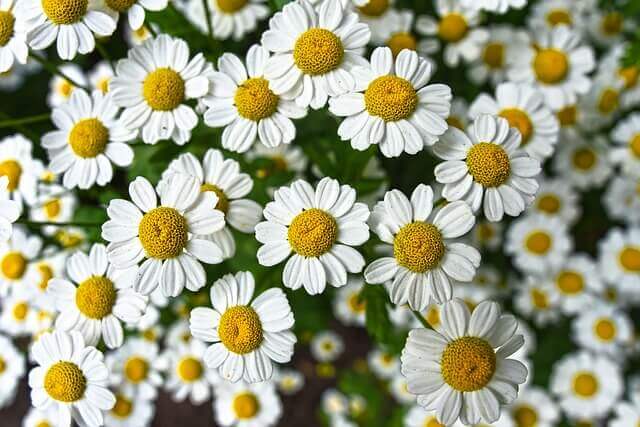
Chamomile is a perennial herb in the daisy family that grows throughout North America. The Chamomile plant has two different varieties, one with blue flowers and the other with white flowers. While both types of Chamomile plants are very fragrant, they are known for their scent most of all. In addition to being aromatic, chamomile also helps to repel deer because it tastes bad to them. This plant is often used in gardens and flower beds because of its aromatic smell, as well as for its ability to repel unwanted pests such as aphids and beetles.
Related Post: How to grow Chamomile plants from seed?
Chives
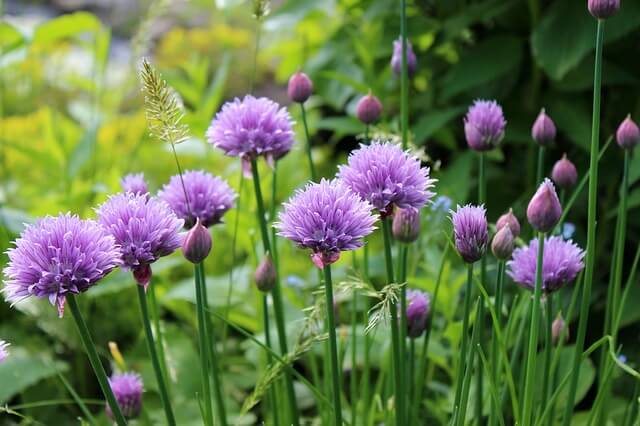
Chives are a member of the onion family. Deer, in their natural state, do not eat onions or chives and will avoid it at all costs, because of its sulfur content. Deer dislike the odor and taste of chives, so it can be used as a natural repellent for them. To use this herb in your garden, plant it among other plants that you want to protect from deer and rabbits. Chives is also an edible herb that tastes like onions and garlic, but without the strong flavor or odor.
Related Post:
Dill
The dill plant is a natural deer repellent. Planting it around your garden will keep deer away and help to make your garden more inviting for you. It’s also a great herb to have in the kitchen! Dill is one way to deter these animals from entering your yard or approaching certain plants. Dill smells terrible to deer, so they will stay away from it as long as you keep it planted in your garden. The smell of the plant also acts as a natural repellent for other insects like mosquitoes and flies too!
Related Post: How to grow Dill at home?
Fennel
A popular solution to deer is the use of plant-based repellents. One such plant is fennel, which has been shown to be a deer-friendly way to deter these animals from grazing on your plants. Deer have an innate fear of fennel and will avoid it if they can. There are two main ways you can grow fennel for this purpose: You can plant it in containers around your garden or in specific areas where deer would be tempted to go.
Related Post: How to grow Fennel from seed?
Basil
There are many reasons to grow basil. The plant is a natural mosquito repellent, provides pest protection for plants and vegetables, and is used in many recipes from salads to desserts. But did you know that planting basil around your garden can also be an effective way of deterring deer? Basil has been shown to be very effective at deterring deer because they do not like the smell or taste of it and will stay away from anything that smells strongly of it.
Related Posts:
Lemongrass
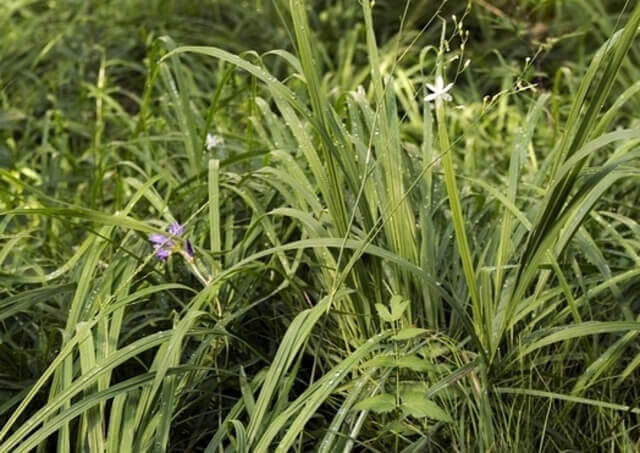
Many people think that there is no way to plant a garden without attracting deer. Lemongrass, a herb used in many recipes and essential oils, can be grown as a perennial plant with low maintenance. It is very hardy and grows up to 4 feet tall. Deer will not eat it because of its strong flavor. Planting lemongrass is a good solution for your gardening needs when you are worried about deer ruining your crops or just don’t want them around!
Related Post: How to grow Lemongrass from seed?
Lemon Balm
Lemon balm is a common herb that grows in most regions of the United States. The flowers are often visited by bees and other pollinators, the leaves can be used in cooking, and the plant has medicinal properties. It’s easy to grow and has many uses, such as flavoring drinks or teas, and it can also be used for cosmetic purposes. The plant is deer-resistant, so you won’t have to worry about them eating your crop if you’re planting lemon balm in an area where they are prevalent.
Marjoram
In an effort to help solve the deer problem in many gardens, there are several plants that have been found to be successful. One of these is marjoram. Marjoram is a perennial herb that grows well in sun or shade and prefers moist soil with good drainage. It can be grown from seed, but more often it is propagated by root cuttings taken during the late summer or fall. Once established, marjoram will tolerate drought and repel deer better than most herbs.
Related Post:How to Grow Sweet Marjoram Herb at Home? Step-By-Step!


